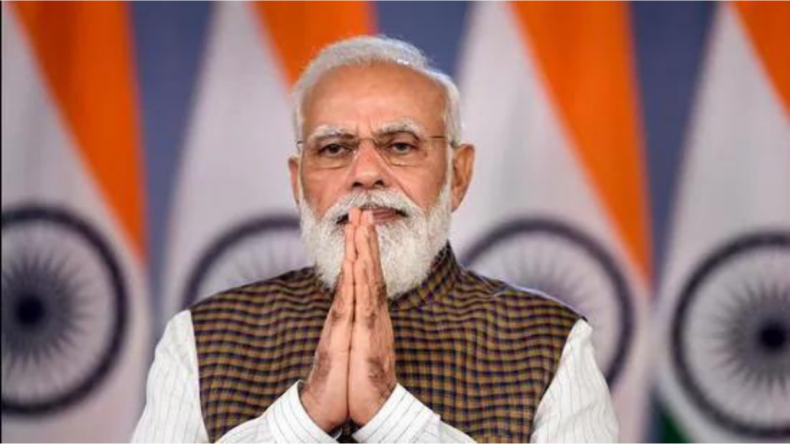India is the world’s third-biggest emitter of greenhouse gases after China and the USA.
Prime Minister Narendra Modi will attend the United Nations Climate Change Summit, also known as, COP26 in Glasgow, said Environment Minister Bhupendra Yadav in an interview with Reuters. The Glasgow Climate Summit will be held from October 31 to November 12. COP26 stands for ‘Conference of the Parties’ meeting for the 26th year this time.
India is the world’s third-biggest emitter of greenhouse gases after China and the United States, and Modi’s participation in the COP26 summit was seen as critical amid uncertainty over whether Chinese President Xi Jinping would attend, reports Reuters.
The decision comes when climate negotiation delegations from the United States, the European Union, and the United Kingdom have travelled to Delhi to discuss India’s climate goals.
British Foreign Minister, Liz Truss will land in Delhi on Friday to finalise details of Modi’s programme with Bhupendra Yadav.
Ms. Truss will announce a $70 million investment to fund green tech infrastructure projects and an investment of approximately $6,90,000 in research to “promote Net Zero targets” during her visit, the British High Commission announced on October 21.
Meanwhile, a senior U.S. delegation led by Robert Blake, a retired diplomat appointed by John Kerry, US Special Envoy, to coordinate with India on the climate financing and clean energy partnership is also in Delhi for talks with Environment Minister.
During his last two visits, Kerry urged the Modi government to update its climate ambitions and consider a “Net Zero” commitment.
Net Zero refers to balancing out greenhouse gas emissions with actions such as planting trees, restoring soil and using technology to prevent emissions from reaching the atmosphere.
Meanwhile, Mr. Blake’s visit coincides with that of the European Union Executive Vice President for the “European Green Deal” Frans Timmerman, who has been in Delhi for the International Solar Alliance.
Bhupendra Yadav took to Twitter to inform about the meeting with Timmermans wherein both parties “discussed issues including climate finance, technology transfer and ways to promote low carbon pathways.”

Growing public pressure for action on climate change has spurred promises by countries and companies worldwide to contribute to the effort, which will be reviewed and amended at Glasgow.
Yadav said, in the interview with Reuters, that India is doing its bit to cut emissions. “India’s NDCs (Nationally Detertmined Contributions) are quite ambitious,” he said. “We are doing more than our fair share. Our NDCs are more progressive than major polluters.”
NDCs are efforts by each country to reduce national emissions and adapt to the impacts of climate change. Diplomats said, as quoted by The Hindu, that Mr. Modi’s decision to attend the summit in Glasgow is seen as a positive sign that India will announce an updated plan at the conference.
The country is on track to increase green energy capacity to 450 GW by 2030, he said. It has installed more than 100 GW of renewable energy, which accounts for more than 25% of overall capacity.
India was expected to update its NDCs to reflect its ambition to install 450 GW of renewable energy by 2030, but the deadline to submit the updated document to United Nations has already passed, i.e., October 12.
India’s Stance:
India has maintained that it is the only G20 country to keep its climate goals on track to achieving the Paris Agreement of keeping global temperature from rising beyond 2°C.
The Paris Agreement or COP21 took place in Paris in 2015. For the first time, every country agreed to work together to limit global warming to well below 2 degrees.
Under the Paris Agreement, countries committed to bring forward national plans setting out how much they would reduce their emissions – known as Nationally Determined Contributions, or ‘NDCs’.
They agreed that every five years they would come back with an updated plan that would reflect their highest possible ambition at that time.
Read More:- How new US travel rules affect various countries, including India













